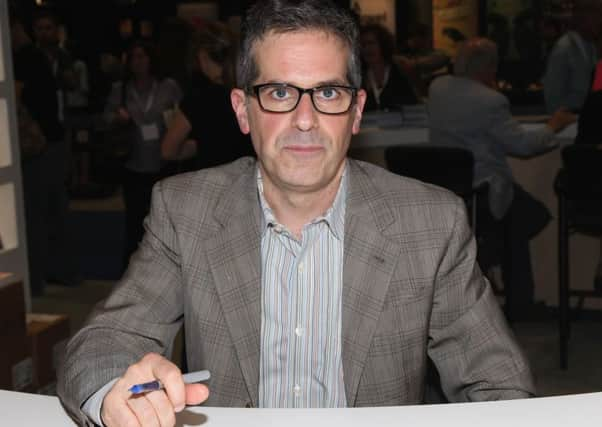Book review: The Blot by Jonathan Lethem


Lethem is interested in radical politics, most recently with an account of the American left, Dissident Gardens, but also in the virtuality-soaked Chronic City. He’s also just damn brilliantly weird – As She Climbed Across The Table is a campus comedy love-triangle, where the narrator’s girlfriend has fallen in love with an artificial black hole. The Blot does not disappoint. It sets a high bar for 2017’s fiction.
Its protagonist is a professional backgammon gambler, Bruno Alexander, whom we first meet in Berlin preparing for a game, slightly rattled by his first loss in years. Worryingly, he has a kind of miasma in his vision. More worryingly, his loss was to Keith Stolarsky, a childhood acquaintance turned property developer, burger magnate and sweat-shop apparel store owner. Libidinous, slovenly, keen on narcotics, he is, as his home country is described, a paradigm of “bullying, psychosis and bad taste”. Yet somehow Stolarsky has managed to learn backgammon and beat Alexander in a matter of days. Alexander, it transpires, is very ill indeed. He has a tumour in his nervous system but it is not inside his skull; it is behind his face. One surgeon might attempt to operate – it will mean temporarily peeling back Alexander’s face, “a door that has never been opened” – and Stolarsky is willing to put up the funds. It comes, as one would expect, at a cost.
Advertisement
Hide AdReading Lethem, I am always on the lookout for which influences he is manipulating. There is certainly horror here, of the Shirley Jackson variety – Alexander keeps a stone paving cube which he has dabbed with his own blood into a die – but with a glance at the films of David Cronenberg. The diffidence of Alexander, his wilful abnegation, reminded me of Bohumil Hrabal; the queasy intersection of illness and sexuality was like a neon-lit version of Thomas Mann’s Death In Venice. At one point I scribbled in the margin “Henry James???” – old money vs new money, Europe vs America, the masks we wear in the company of others and the masks we wear alone – and was immensely gratified when, on page 177, one character says “Sounds like Henry James.” This being Lethem, we get references to Marvel’s Ghost Rider and DC’s Deadman, as well as anarchism via Prince Kropotkin, Samuel Beckett and The Big Lebowski. Oh, and did I forget to mention possible telepathy?
Lethem can fire out ideas and images like no-one else, but that would mean little except for the glorious timbre of the prose itself. Take this for example: “The office was worse than ill-furnished and generic. It was like something an unmarried super might throw together at the back of a boiler room, a refuge whose walls investigators would later pry apart in search of hidden bodies”. Or when the arrogant surgeon is reflecting on his skills: “The interns closed up the skull and flap for you, whether the skull of a triumph, a solid bragging point, or that of a new-made human vegetable never again to breathe without a tube, or the skull of a bled-out corpse”. There is, I think, a structure to the novel based on the language of backgammon itself: doubles, runners, a blot, bearing off; that it features exponential sections – one, two, four, eight, etc – ending gammon and backgammon hints there may be even deeper delights for another reading.
Elegance of word and thought still needs heart and purpose. In all its pyrotechnics, Lethem never loses humanity; not even for the least likeable and duplicitous characters. There are moments of genuine, inexplicable tenderness as well as the sarcasm, venality and schadenfreude that swirl around the book. It has an urgency which is not ephemeral.
I suspect many reviewers will draw parallels between Stolarsky, thin-skinned and belligerent as he is, and certain prominent political figures, especially as his office is described as “the nullification of Europe”. That would, I think, be gauche; and Lethem is subtle. It is about how such situations arose. It also shows, importantly, that the genre best equipped to speak truthfully about the world we are in is not a flat-footed and sententious realism, but un-realism. It is an accurate reflection of the bizarre and a sharp rebuke to its simplicity.
*The Blot by Jonathan Lethem is published by Jonathan Cape, £16.99